
How Can We Believe the Statistics?
The editorial of Arman Melli underscores that the official statistics about economic growth and the decline in the inflation rate are not true just as people can see for themselves when they go shopping or try to provide for their families.
The government offers different economic statistics with respect to its economic performance to the public which do not seem to be accurate. That is because people’s economic conditions are such that they do not feel any economic improvements in their livelihood.
The government offers these statistics while independent media outlets in the country are not allowed to verify these statistics. So, given the fact that the government fully controls the domestic media, it promotes news of economic improvement and economic growth while alleging that the inflation rate is on the decline. Thus, the government is trying to utilize the media to psychologically influence society.
But it is the people who should talk about the statistics. When we enter any store, we can see that both buyers and sellers express their dissatisfaction with the economic conditions. In some families, there are university graduates who are looking for jobs and cannot find any. Then how can society accept the government’s statistics? When there are no jobs in Iran and there are poor economic conditions, the country’s youths will resort to leaving the country in search of a better future.
But the government, nonetheless, announces that the rate of unemployment has dropped and economic conditions have improved. It is not clear where these statistics come from and they must be verified by the public. People do not accept these statistics and do not trust these numbers while suffering from low incomes, high prices and inflation with their own flesh and blood.
China in the Future Middle East
The editorial of Arman Emrooz argues that China, by not siding with the United States and Israel over the war in Gaza, will be better positioned in the Middle East after the war is over.
Geopolitics means focusing on politics based on geography or foreign policy in relation to geography. The governments of the most powerful countries seek to take advantage of geographical locations to maintain their hegemonic dominance and superiority including control over shipping lines, straits and waterways. Moreover, other instruments that might be used by superpowers to establish dominance over other governments are in the form of geo-economy and geo-culture, which means focusing on relative regional economic advantages as well as taking advantage of cultural-political motivations and aspirations. China’s confrontation with the war in Gaza is deeply influenced by these two factors: geo-economy and geo-culture.
Being familiar with and focused on the sensitivity of nations and governments in the Middle East and the Palestine problem, Beijing for the first time has not sided with the Euro-Atlantic nations and Israel over the issue of the Hamas-Israel war, but has rather taken soft critical stances against the Israeli government and the United States.
Beijing has not hesitated in vetoing Washington while maintaining its general stance in this conflict so far. It seems that if Beijing takes a more transparent and stronger stance in this regard, it will have a more stable position in the Middle East after the war in Gaza is over.
There is no doubt that after the war in Gaza is over, China will be more than ever the buyer of oil and natural gas in the region. Furthermore, China’s trade with 15 out of 16 governments of the Middle East will be on the rise. There can be hardly any doubt that after the war in Gaza, the mutual Arab-China investments will expand, particularly through BRICS. Besides, there will be more talks of military-defense cooperation between Arab nations. The more obvious tendency toward China after the war in Gaza will remind the United States and NATO of their strategic mistake in fully defending Israel.
Acceptable Policy
The editorial of Arman Melli describes Iran’s policy toward the war in Gaza as acceptable so far.
The conditions in the region are so complex that even the Americans themselves do not know which direction the region is heading toward. The Israelis, however, intend to start a house-to-house war in Gaza. This measure seems to be tough and bloody, and even though it is going to result in irreparable damage on both sides, it seems that the Israelis will suffer hugely from this street-to-street war.
The truth is that Benjamin Netanyahu, under the current circumstances, has suffered a humiliating defeat and is after compensating for it at all or any cost. So it is highly unlikely that the war will come to an end soon and probably in the coming days, it will take shocking turns.
Perhaps even the West does not agree with this measure because they keep saying that the war in Gaza must not spread to the rest of the region. On the other hand, Western countries have announced that they have provided Israel with military equipment and have nothing else to do with this war.
That is why they keep sending messages to Tehran urging it not to take any measures about Gaza and trying to stop other groups of the Resistance Front from beating the drums of war.
In the meantime, Iran has shown it has no intention of entering the war in Gaza. Iran’s current policy toward Palestine is acceptable because, on the one hand, it backs Palestinians and their rights, and on the other hand, it tries to establish a ceasefire for humanitarian reasons.
As we move forward, the focus on Gaza seems to be increasing.
Israel’s Goal for Invading Gaza
The editorial of Arman Melli penned by Iran’s former ambassador to Norway explains what the Israeli government might be trying to achieve by invading Gaza.
The Israeli regime was shocked by Hamas’ ambush attack and is now facing serious problems including division among the Israeli public after this incident. Those whose family members have been taken hostage do not endorse the invasion of the Gaza Strip and the number of these people is on the rise day by day. On the other hand, Israeli hostages have created another obstacle for the ground invasion of Gaza, and Israel fears that these hostages might get killed thus leading to a bigger crisis within the country.
Israel’s entry into Gaza is practically an urban war and the Israeli army must engage with Hamas forces in the streets of Gaza which is why the Israelis are not interested in engaging in such a costly war that might last for months. A heavy atmosphere against Israel is being shaped, and as we witnessed in the United Nations, the international community is calling for a ceasefire.
So Israeli military commanders, as well as the war minister, have announced that they are after certain goals in the ground invasion of Gaza, meaning that they will advance step by step. In their first stage, they have taken steps for entering Gaza and now they are testing to see if they can move faster. And if they cannot advance, they will keep bombing Gaza to exhaust Hamas and then continue to move forward.
Therefore, instead of occupying the entire area of Gaza, they seek to move through the middle of Gaza, reach the sea, and divide Gaza into halves, thus disconnecting the ties between Islamic Jihad and Hamas in northern and southern Gaza. By doing this, the Israelis think that these two forces will be unable to give military equipment and supplies to each other.
If so, Netanyahu can claim a victory for himself and his government, alleging that they have avenged their defeat. Such news can ease the pressure on the Israeli government and help it to get rid of the crisis it is facing now.

Ebrahim Raisi to Go to Saudi Arabia
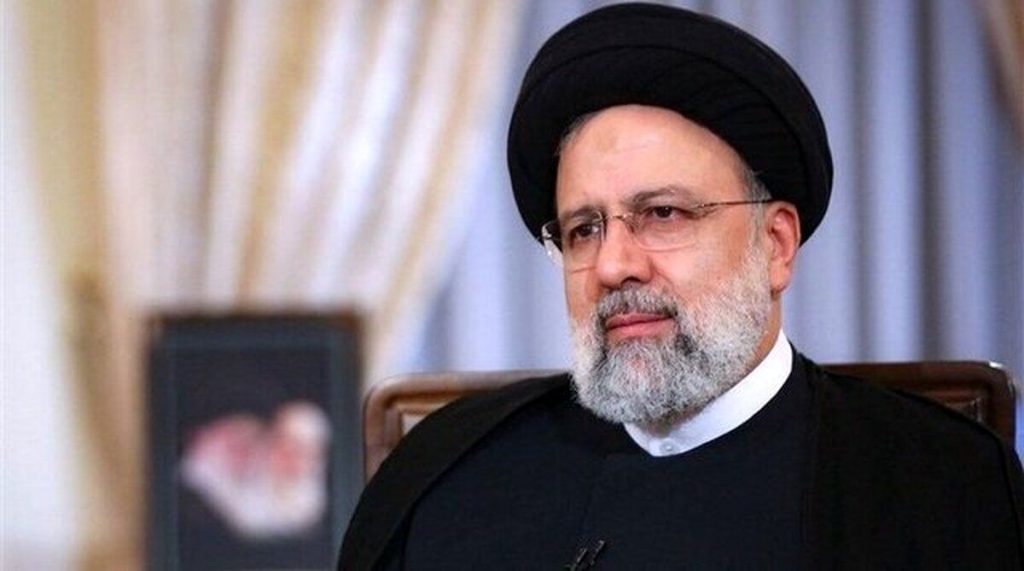
According to the Iranian media, President Ebrahim Raisi will visit Saudi Arabia next week to attend the Organization of Islamic Cooperation (OIC) summit for Arab and Islamic leaders to discuss the crisis in Palestine.
Saudi Arabia is currently chairing the OIC where the OIC headquarters are located.
On its X (formerly Twitter) account, the OIC announced on Monday that it “will hold an extraordinary Islamic summit at the invitation of the Kingdom of Saudi Arabia, in its capacity as Chair of the current Islamic Summit, on Sunday, November 12, 2023.”
The OIC consists of 57 Islamic countries and has condemned Israel’s attack against Gaza several times so far.
Earlier, Iranian Foreign Minister Hossein Amir-Abdollahian, in the emergency meeting of the OIC Executive Committee held in Riyadh after the breakout of the Hamas-Israel war, had pushed for Islamic countries to stop exporting oil to Israel and cut diplomatic ties with this country.
Raisi’s trip to Saudi Arabia next week takes place after diplomatic relations between Riyadh and Tehran were severed for nearly seven years.
After attacks on its embassy in Tehran and its consulate in the city of Mashhad in 2016, Saudi Arabia recalled its ambassador from Tehran and broke off all relations with the Iranian government.
After seven years, relations between Saudi Arabia and Iran were restored earlier this year under the mediation of China.
Activists Oppose Military Attack on Iran, Warn Against Khamenei’s “Anti-national” Policies
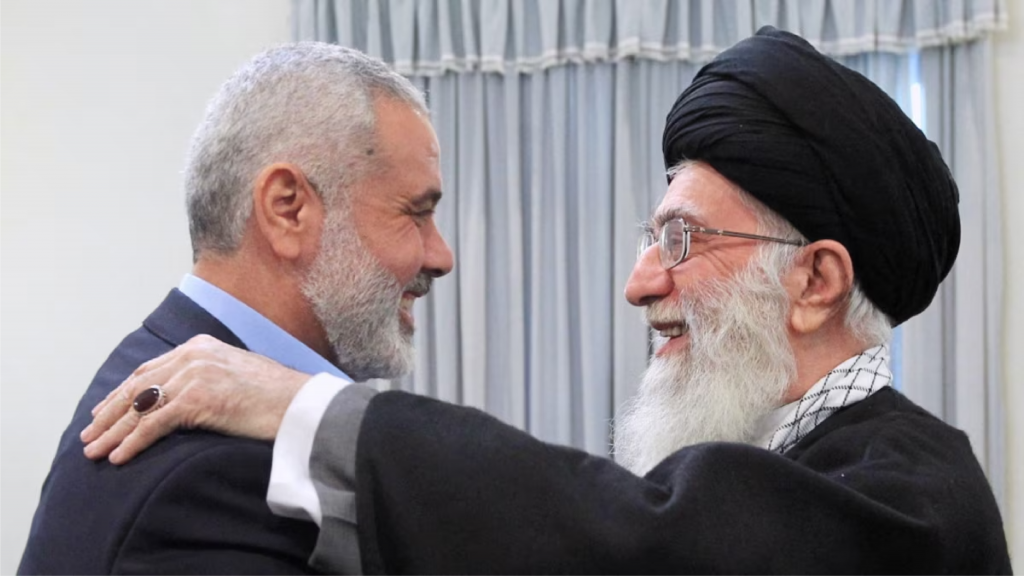
Eighty civil and political activists have issued a statement opposing a military attack against Iran, saying it would “solidify the tyrannical regime” ruling the country.
The activists trenchantly criticize the idea of attacking Iran posed by a part of the Iranian opposition, noting that “the plan of cutting the head of the snake in Iran during the bloody attacks of Israel on the Gaza Strip is practically useless and only divulges the hidden or obvious inclination of such individuals and institutions for a military attack on Iran.”
The names of the individuals or institutions of the Iranian opposition are not mentioned in the statement; however, the United Against Nuclear Iran (UANI) has called for military action against certain targets in Iran. This group said the attack should be focused on IRGC locations, missile and drone sites as well as centers where — according to UANI CEOs Joseph Lieberman and Mark Wallace —Iran’s proxy forces are trained.
Attacking Iran “has no outcome but the destruction of the country, solidifying the ruling tyranny, intensifying the suppressive policies against civil and political society and putting people in more dire economic conditions,” notes the statement.
The signatories also raised the alarm against Ali Khamenei, the supreme leader, about driving Iran to war with his “adventurist, unwise and anti-national policies.” They believe that “Khamenei has no right to ignore the demand of the majority of Iranian people and prioritize his delusions about the region.”
50 University Students Reprimanded, Suspended in a Week for Not Complying With Hijab Rules
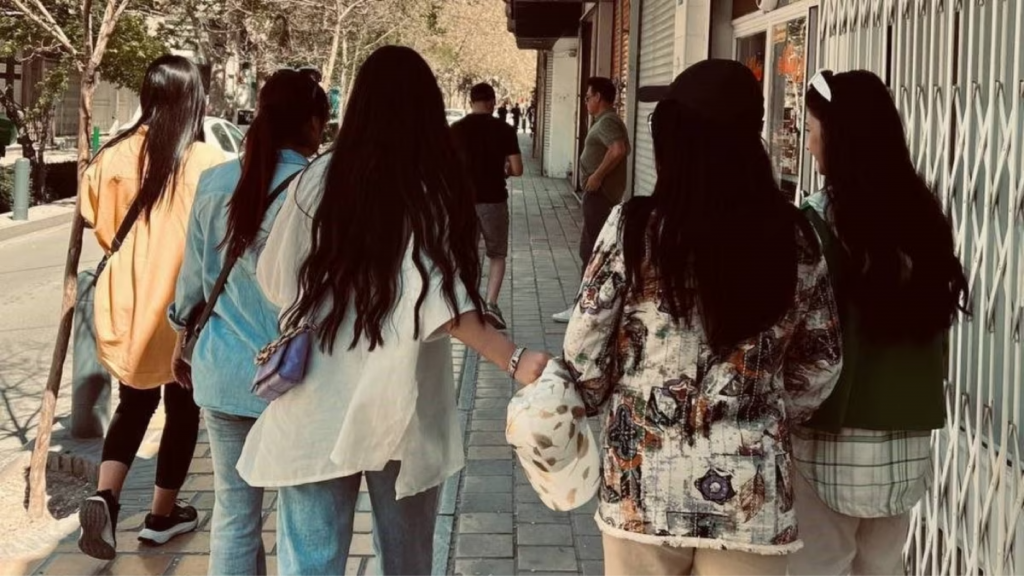
According to a report published by student activists, the plan for deploying the so-called “hijab enforcers” inside Tehran University and around Amir Kabir University has expanded. In the meantime, universities’ disciplinary committees have reprimanded and suspended several students, including 50 female students, on the charge of not fully complying with the mandatory hijab law.
The report urges that increasing hijab enforcers’ pressure on students aims at imposing forced hijab on girls and women.
Initial reports of deploying forces called “hijab enforcers” in metro stations were released in the middle of summer and the Iranian media reported that Tehran Municipality had hired 400 individuals called “hijab enforcers” on a salary of 12 million tomans to be deployed in metro stations.
Now there are reports of expanding the activities of hijab enforcers to universities and certain streets of Tehran, while Iranian government forces have closed businesses, tourist centers, and hotels. Officials have also sent text messages to warn women for not complying with the compulsory hijab law, and violently confronted and arrested women. These measures, however, have mainly failed in confronting the civil movement for women’s rights and the extensive fight against forced hijab.
In the meantime, the head of Tehran’s judiciary has emphasized heightening the confrontation with those who are against obligatory hijab.
These remarks are made while some analysts hold that the “hardliners” in Iran are escalating the security atmosphere against women about the issue of forced hijab in an attempt to pressure lawmakers to expedite amending and finalizing new hijab laws which will put unprecedented pressure on girls and women.
Meanwhile, some media outlets close to Iranian security bodies and the “hardliners” have criticized Iran’s judiciary for not severely confronting women who do not comply with mandatory hijab regulations.
Workers Living, Sleeping in Tents Unable to Afford Accommodation
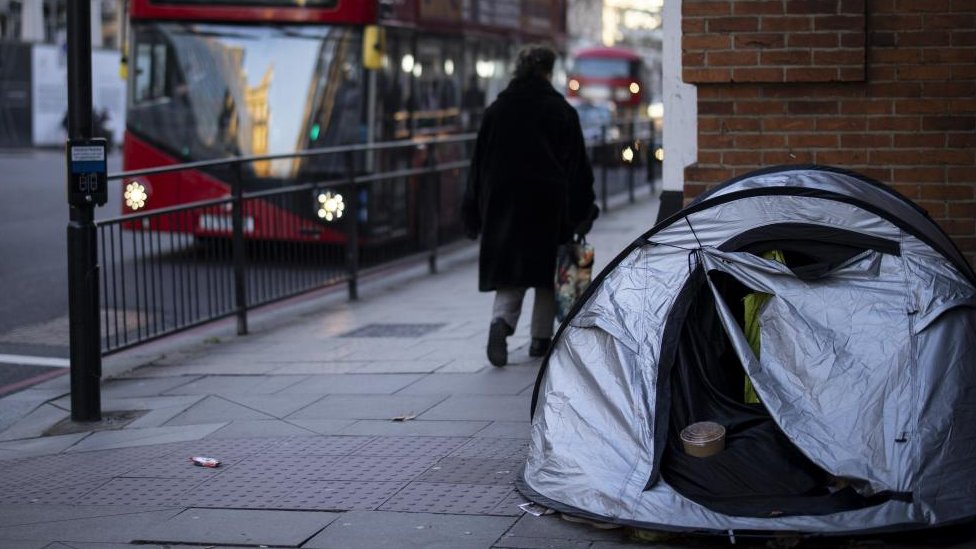
While the head of the veteran workers’ union has underscored that wages and salaries under 15 million tomans must be considered below the poverty line, Tasnim News Agency, closely affiliated with the Iranian establishment, too, has reported on workers’ dire livelihood problems.
According to Tasnim’s report, some workers, unable to pay their rent, are now living in tents. It is underscored that what is determined by the government as workers’ housing benefits is not enough to pay the rent for even one night.
Moreover, Hassan Sadeghi, the head of the veteran workers’ union, has described workers’ living conditions as grave, urging that the working class is not receiving fair wages to provide for themselves and their families.
Notwithstanding the crisis of abysmal living conditions suffered by workers, Iranian officials claim that there is economic growth and an improvement in economic indicators – a claim that has been questioned by many.
According to Donya-e-Eghtesad daily, even though official numbers indicate an improvement in economic growth and a rise in employment, more than 80% of people say they are not witnessing any positive changes in their lives.
Donya-e-Eghtesad has explained that the inflation rate in Iran is so high that even if households do benefit from economic growth, these benefits are ravaged by soaring inflation.
The statistics published by Iran’s Statistical Center indicate that the inflation rate in the country is still above 40%.
In the meantime, a former official stated that the number of slum-dwellers in Iran has grown from 600,000 to more than 25 million people in 35 years.
Slum-dwelling is related to multiple crises in Iran including the economic crisis and the water crisis. In this regard, the Parliament Research Center asserted in its latest report that all provinces are dealing with the issue of slum-dwelling.
20% of Schools in Iran Are Dilapidated
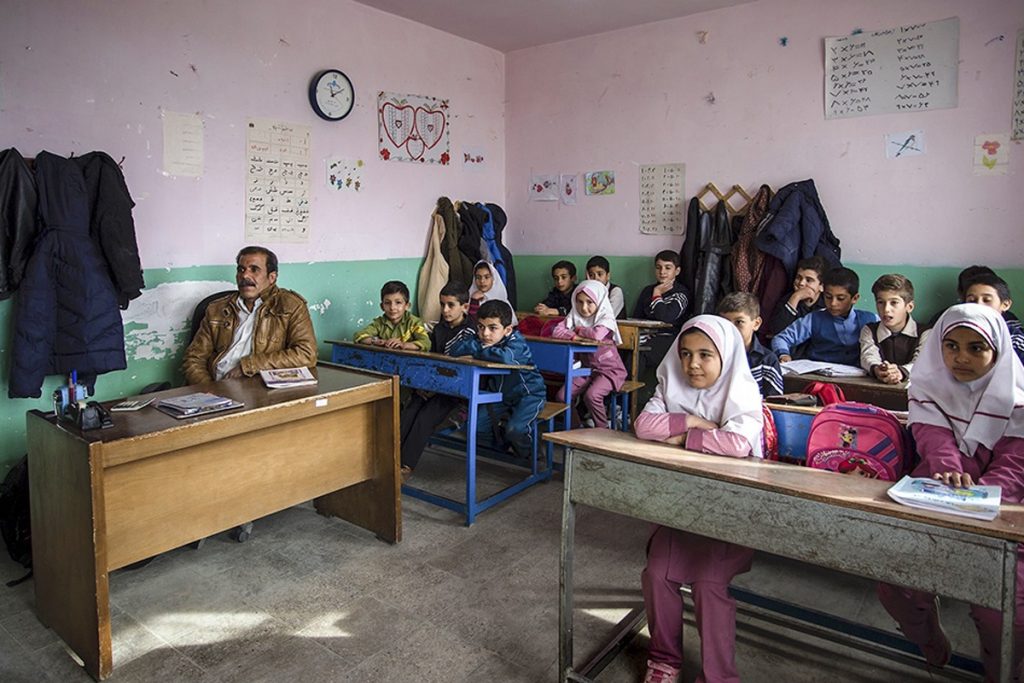
The deputy of the organization for renovating schools in Iran said that 20% of schools in the country are dilapidated, emphasizing the need to differentiate between school buildings that are in a “hazardous” state and those that are in a dilapidated state.
Majid Abdullahi underscored that students are not permitted to study in schools where conditions are hazardous, adding that this year 14 schools in Isfahan suffered from subsidence and children were not allowed to study in them.
According to this official, roughly 20,000 schools out of about 105,000 schools, as well as 104,000 classrooms out of 540,000 classrooms, are suffering from dilapidation.
Abdullahi added that 6% of the classrooms (roughly 33,000 classrooms) must be broken down and reconstructed.
The head of the organization for renovating, developing and equipping schools in Iran recently said that 30% of 104,000 classrooms in the country must be broken down, reconstructed, renovated or reinforced.
Conditions of the so-called dilapidated schools are much more dire in smaller and distant cities. In this regard, ILNA had reported on the first day of the educational year that students in Ludab district in Kuhgilyueh and Buyer-Ahmad Province started their new year in schools without desks, waterpipes, heat and safety.
While the lack of safety in schools is a nationwide issue in Iran, the Iranian government, over the past decades, has focused its policymaking and allocation of budgets on changing the school curriculum and increasing the ideological content in coursebooks and the educational system.
